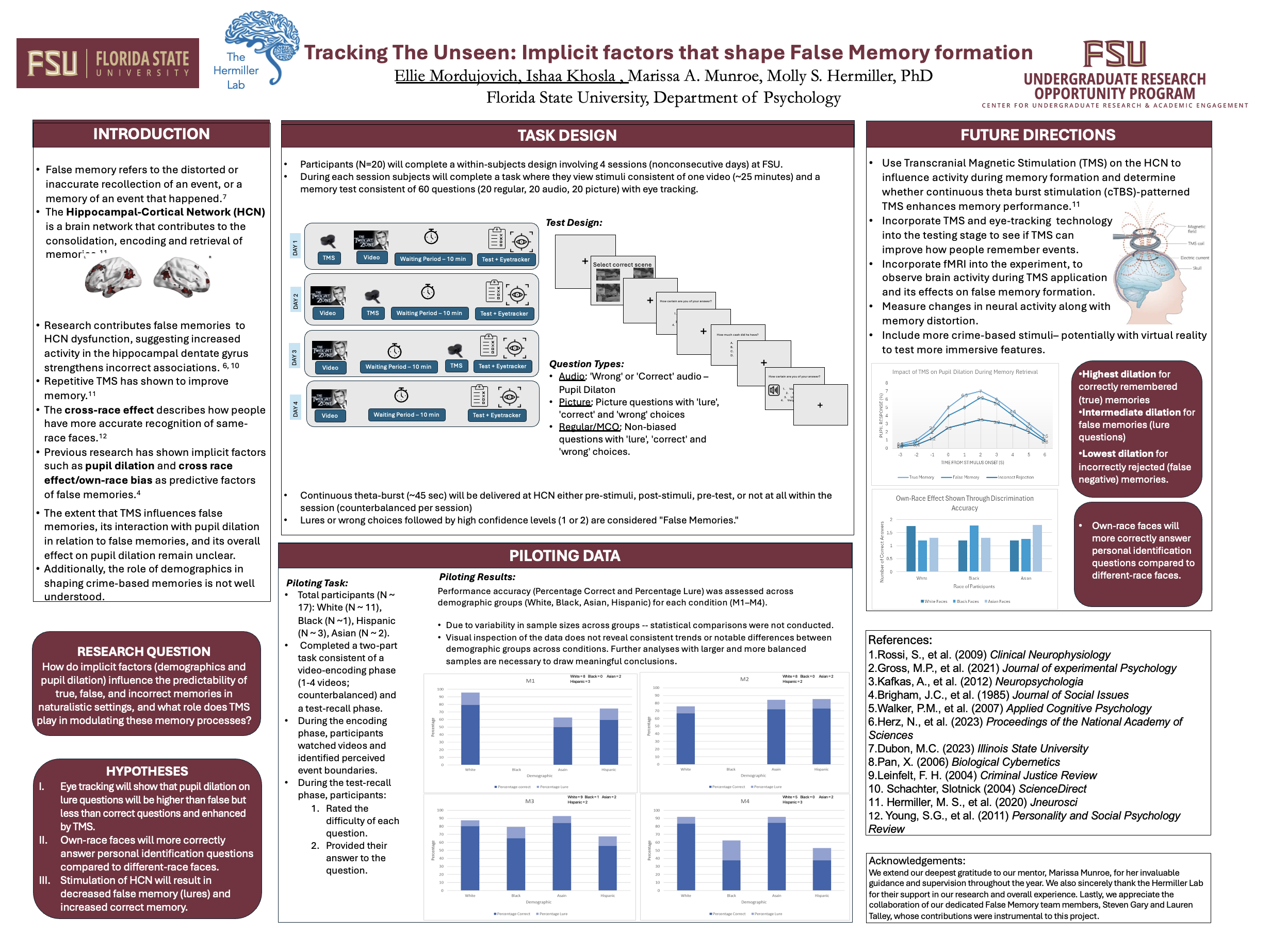Research Symposium
25th annual Undergraduate Research Symposium, April 1, 2025
Ishaa Khosla Poster Session 3: 1:45 pm - 2:45 pm/ Poster #78
BIO
I'm an undergraduate psychology major with a genuine passion for neuroscience and cognitive research. My current work explores memory processes, specifically using non-invasive brain stimulation and eye-tracking to investigate false memory formation. Beyond my research, I'm deeply interested in the intersection of memory and mental health. I am passionate about bridging the gap between scientific research and public understanding, using my background in psychology and commitment to public health to make complex findings accessible. My career vision combines psychological research, public health advocacy work, and narrative journalism to create opportunities to amplify diverse perspectives that have otherwise been overlooked. II believe that data-driven research and compassionate journalism can work together to transform how we understand and address mental health challenges in our society.
Tracking The Unseen: Implicit factors that shape False Memory formation
Authors: Ishaa Khosla, Marissa A. MunroeStudent Major: Psychology
Mentor: Marissa A. Munroe
Mentor's Department: Department of Psychology Mentor's College: College of Arts and Sciences Co-Presenters: Ellie Mordujovich
Abstract
False memory is defined as the distortion of certain events leading to a false recollection of memory. This research study aims to investigate implicit factors that may influence the encoding and retrieval of false memories. Additionally, it will explore how non-invasive brain stimulation can modulate false memory formation and recall. We are examining implicit factors such as demographic influences and pupil dilation measured through eye tracking. Within demographic research proposes a theory known as ‘own-race bias’ explaining that those who identify most with the people in stimuli will more accurately identify people of their own race compared to other-races. Research has shown that pupil dilation can be a potential identifier between false and correct memories. In this study, we will use noninvasive brain stimulation—transcranial magnetic stimulation (TMS)—to modulate the hippocampal-cortical network (HCN), a key system involved in memory encoding and consolidation. Our task includes a naturalistic stimuli phase (a video) and a test phase (multiple choice, audio, visual questions). TMS will be delivered at the left parietal cortex – which indirectly increases the HCN – pre-video, post-video, pre-test, or none to potentially increase accuracy with questions.We hypothesize that TMS will diminish own-race bias and increase recall accuracy. Prior to running the full study we conducted a pilot study which tested the difficulty of the questions we will use in our simulation-based study. Results from this study will increase our understanding of false memory and provide insight as to how implicit factors play a role in the encoding of those memories.
Keywords: Memory, Transcranial Magnetic Stimulation, Eye-tracking, False Memory, fMRI

